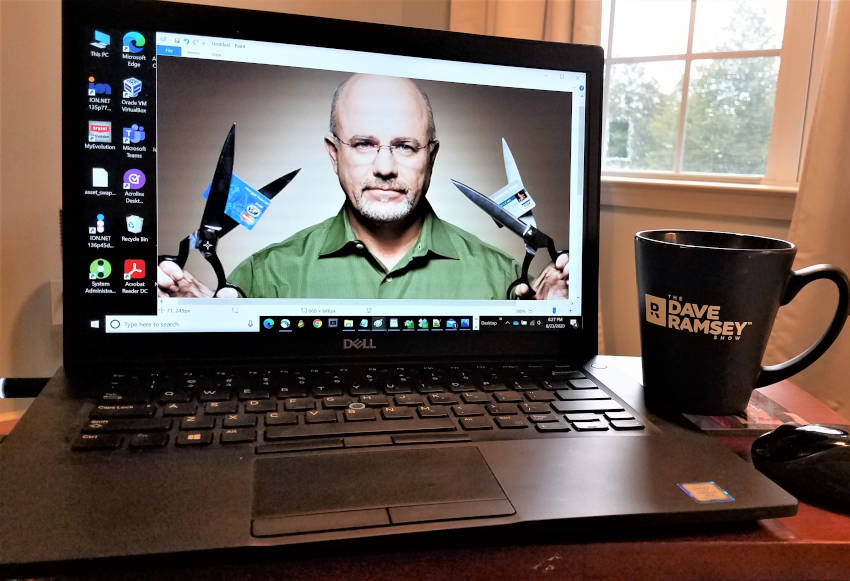I’m sure the year has been hard for most people. But the pandemic aside, the year has been particularly rough for my R.N. wife and me. For starters, a family friend’s son committed suicide. My father-in-law’s health also started to deteriorate.
Bert, who was in frail condition, had been in and out of the hospital this year. Our routine included things like recording his weight and blood pressure, preparing his breakfast, and helping him go up and down the stairs.
Then, he died because of a pre-existing heart condition.
We were, in a way, expecting it. He was 80 years old and had been struggling with congestive heart failure or CHF. Though just a year ago, he seemed very healthy for his age, having brisk-walked around the community for miles at a time.
Over the course of two weeks, I’ve learned several things that must be done when a family member is dying, which I plan to share in this post.
Estate planning tools you should know
Like other major events in your life, knowing your legal options BEFORE IT HAPPENS and preparing for it can significantly lessen the burden to all parties involved.
Durable Power of Attorney: This document enables you to appoint another person to make financial or medical decisions on your behalf when you become incapacitated— that’s what makes it “durable.”
This can be useful if your loved-one have bank accounts that are solely under his name that he wanted to be closed or emptied before dying, for example.
In contrast, the survivor of joint bank accounts can usually withdraw without any legal procedure.
Health Care Directive or Living Will: Bert suffered a cardiac arrest on our way to the ER. The hospital staff was able to revive him, but they had to put him on a ventilator. Sadly, his brain had been deprived of oxygen for too long to be able to breathe on his own.
Without a directive, the difficult decision not to resuscitate or “DNR” had to be made by the immediate family. My mother-in-law, who lives outside the states, included. Had there been disagreements, a Living Will would have resolved the issue, avoiding a potential Terri Shiavo scenario.
Last Will and Testament: Power-of-Attorneys, including durable ones, are useless when you die; it’s never a substitute for creating a will. Drafting a will should be a priority especially if the dying person owns a house, a car, or have young children. You may or may not need a lawyer depending on the complexity of the estate.
Having not worked here for any significant time, Bert didn’t have a property (or debts) in the states that need to be settled on probate.
Related: Dying Without a Will Could be Your Ultimate Horror Story
Life Insurance and Individual Retirement Accounts: Not an estate tool per se. But ensuring that all accounts have the correct beneficiary designations is a tremendous timesaver. They’re easy and probate proof– the designations supersede will and trust instructions.
Arranging for Funeral or Memorial Service
Two days after the hospital pronounced Bert’s death, we arranged with a local funeral parlor with an on-site crematory, which reduces the chances of ashes getting switched.
A traditional funeral would have been significantly more expensive because the body needs to be embalmed, sanitized, dressed, and laid in a casket.
The funeral director gave us three quotes:
- Standard Cremation Package (no visitation), $3,600
- Memorial Service Cremation Package, $4,900
- Traditional Funeral and Cremation Package, $7,925
The following are additional charges:
- Certified Death Certificate, $20 each
- County Cremation Permit, $50
- Sanitation and private visitation prior to cremation, $395
Of course, cost will vary depending on where you live. I live in suburban Philadelphia.
We ended up picking the no-frills standard cremation package. The coronavirus pandemic has made the decision not to have a traditional funeral easy. Most family and friends are living overseas anyway.
In any case, do not buy a casket or an urn directly from the funeral home. They are up to four times more expensive than when you buy them from Amazon or Costco.
And yes, they both sell coffins.
Cemetery Costs
We didn’t make any arrangements because we plan to fly Bert’s ashes to the Philippines. But I’ve checked a local burial ground out of curiosity.
Grave lots are $900 each. Grave size is 40 inches by 10 feet. Up to two burials can be placed in a grave lot, whether these are traditional burials, cremations, or a combination of both.
Grave Opening & Closing Costs
- Single depth burial, $1,100
- Double depth burial, $1,350
- Burial of a cremation urn or vault, $600
- Burial of a second cremation urn or vault, $300
Cemeteries require a minimum of 48 hours notice to open a grave— not including weekends. Many funeral homes will make these arrangements for you.
Other things you should know
The following didn’t apply to us but should be acted upon, if applicable.
Most institutions will require you to present a certified copy of the Death Certificate. Make sure to ask for multiple copies as needed.
Social Security: The funeral home will send a statement to the Social Security Administration. The family should contact Social Security to apply for a lump sum death benefit (surviving spouse, dependent children) or any survivor’s benefits, if eligible.
Veteran’s Benefits: If the deceased was a veteran, he or she could be eligible for benefits. All deceased veterans are eligible for a flag, cemetery military honors and a government market for the grave.
Real-Estate: Property owned jointly by husband and wife is automatically transferred to the survivor as soon as the county gets notified. Other cases must go through probate whether or not there is a will. It’s wise to consult an attorney in all real estate matters.
Automobile Title: If the deceased was the sole owner of a car, truck, or trailer, it is part of the estate. Transfer of title information can be obtained from an attorney or the office where license plates are sold.
Company Stocks: Stocks in the deceased’s sole name require probate action. Joint accounts can be easily transferred. Other cases must be probated. A broker or banker can assist you.
Insurance: The local agents should be promptly notified. All policies (even those that have lapsed) should be examined, seeking any extended coverage. All policies on the lives of survivors should be examined to determine changes in the beneficiaries.
Self-hosted virtual memorial service
The basic cremation package didn’t include an online tribute and slideshow. But with my rudimentary video editing skills and help from family friends, I was confident we can make a better tribute to my father-in-law than the funeral parlor can ever do, anyway.
So we self-hosted a virtual memorial service ourselves using GoToMeeting. In this way, Bert’s immediate family in the Philippines and UK (up to 150 people) can watch the event live.
You can watch our dad Bert’s beautiful memorial service on YouTube.





